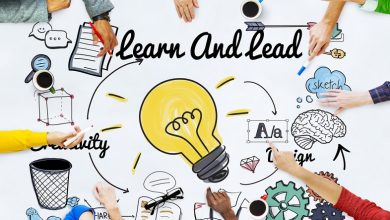
Can I ever do my assignment on my own?
This is a regret that probably runs around the mind of any student who needs assignment tutors every time they come across an assignment. However, the online academic writing industry is a booming sector catering to thousands of students struggling with their studies.
As a result, online assignment tutors have become akin to teachers and instructors who guide pupils through their academic troubles.
So, why do some students struggle with their assignments while some don’t? Several reasons lie behind such struggles, from narrow deadlines & overtly complex topics to poor teaching methods and varying learning capabilities.
This article intends to explore learning abilities as it dwells into the psychological definition of learning, identifying the three primary forms of learning and more.
Curious to know how you learn? Read on and enlighten yourself.
How Do We Learn?
With birth, the infant human brain starts developing rapidly, gulping sensory information, forming habits, and learning from the environment around itself. By the age of 5, a child’s brain develops more than any other time in their life.
Yet, the human brain does not need to learn everything from scratch. For example, infants suckle at their mother’s breast without explicit learning about it. Similarly, no one teaches us to sneeze or swiftly move our hands from something scorching.
Learned behaviors involve change and experience, a relatively permanent change in behaviors and knowledge resulting from experience. Unlike innate instincts and reflexes, learning involves acquiring knowledge & skills through experience.
So, how does our mind/brain learn to do something?
Any complex learning process, say, for example, learning to become a successful online assignment tutor, involves intricate interactions between conscious and unconscious processes. Scientific studies and empirical analysis show that learning consists of the mind automatically making associations between events.
- From a psychological perspective, the mind partakes in associative learning, making connections between stimuli and events or the environment.
- Associative learning is central to all three basic learning processes, operant conditioning, classical conditioning, and observational learning.
Different fields of psychology, such as memory and cognition, propose different approaches to learning. Contemporary psychology explains learning by converging all such different paths.
Dissecting The Psychology Of Learning Using Behaviorism
Behaviorism or behavioral psychology states that all acquired or learning behaviors are obtained through conditioning, which occurs through interactions with the environment. Thus, according to behaviorists, our responses to the environment and stimuli shape our behaviors.
Classical conditioning, operant conditioning, and observational learning are three primary processes laid down by behavioral learning theory.
-
Classical conditioning laid the foundation of behaviorism
The idea behind this learning process involves associative learning, where a conscious mind associates a stimulus with a result and anticipates future events. Thus, behaviorism/ classical conditioning considers human and animal behavior primarily the result of conditioned responses.
-
Operant learning the second type of associative learning
In this process, organisms learn to associate behavior and its consequences. A pleasant result makes a particular behavior associated with a positive outcome.
-
Observational learning
The third process focuses on imitation through observations. Individuals mirror actions through careful observations and a special kind of neuron in the brain called mirror neurons for this kind of imitative learning, a form of observational learning.
With discovering a cognitive component to learning, psychologists have discerned that pure behaviorism is not the definitive answer to learning theory. It cannot explain why learning takes place in the absence of direct external reinforcement.
The psychology of our mind learning stimuli conditioning, observations and reinforcements also come int plat when a student does online searches such as “Can I pay someone to do my assignment for me?”
Apart from former observations and subsequent reinforcements, cognitive defense mechanisms also come into play as most students are often in denial about the negative consequences of availing of online assignment help.
The cognitive learning theory is a non-behaviorist approach that considers internal factors of the brain, such as thinking, intelligence, cognition, etc., as crucial influencing factors during learning processes. Cognitive psychology is a significant influence on this particular learning theory.
In this theory, the brain and its role as an information processor is a central idea and analogous to the operations of a computerized information processing system.
Well, that’s all the space we have for today. Hope this article helped readers learn more about the way the human brain/mind learns.
Psychology is a complicated subject, and it is quite natural to seek assistance from teachers and professional academic services if you need help. So, do not put your mind under stress and make sure to drop “do my assignment” requests only at reputed writing services and with reliable assignment tutors online.
Read Also: Never mess with taxation homework here is the reason why?





